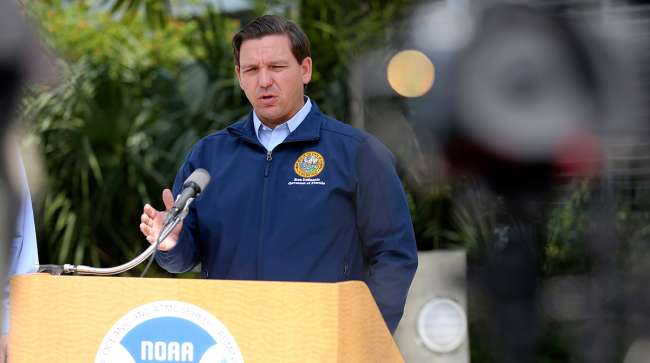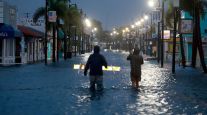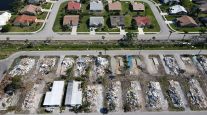Staff Reporter
Florida Gov. Ron DeSantis Declares State of Emergency Ahead of Hurricane Dorian

[Stay on top of transportation news: Get TTNews in your inbox.]
Florida Gov. Ron DeSantis has issued an emergency declaration in preparation of Hurricane Dorian, giving state agencies license to waive certain commercial motor vehicle requirements.
The declaration, issued Aug. 28, pertains to 26 counties that are expected to lie in Dorian’s path. According to the National Weather Service, the hurricane has reached a maximum sustained wind of 85 mph and could hit the U.S. mainland Sept. 2.
RELATED: FMCSA Declares Emergency Ahead of Hurricane Dorian
“It’s important for Floridians on the East Coast to monitor this storm closely. Every Florida resident should have seven days of supplies, including food, water and medicine, and should have a plan in case of disaster,” DeSantis said in a press release. “I will continue to monitor Hurricane Dorian closely with emergency management officials. The state stands ready to support all counties along the coast as they prepare.”
The emergency declaration gives the Florida Department of Transportation authority to waive hours-of-service and registration requirements for trucks that enter Florida to provide emergency supplies, transport equipment and relocate Federal Emergency Management Agency mobile homes.
Florida EO by Transport Topics on Scribd
FDOT also may waive size and weight restrictions for trucks involved in such activities. However, the executive order notes that vehicles will not be allowed to exceed weight limits on load-posted bridges.
The emergency declaration also gives FDOT authority to waive the collection of tolls on the Turnpike and other public highways in the event of an evacuation.
Under the declaration, the Department of Highway Safety and Motor Vehicles may suspend the enforcement of registration requirements spelled out in the International Fuel Tax Agreement for motor carriers that are properly registered in other jurisdictions and are participating in emergency relief efforts. “Because of the uncertainty in the track of this storm, every resident along the East Coast needs to be ready,” said Florida Division of Emergency Management Director Jared Moskowitz. “As updates come out, it’s important that Floridians continue to pay attention to media and local officials as the track of this storm has been changing and can continue to change rapidly. By having an executive order in place and by activating the State Emergency Operations Center to a Level 2, we are fully prepared to support any community that might be impacted.”
11a #Dorian update:
This hurricane is expected to strengthen over the next couple of days. We encourage people to listen to local authorities and begin taking precautions now. pic.twitter.com/ze2L0Qhgsg — The Weather Channel (@weatherchannel) August 29, 2019




